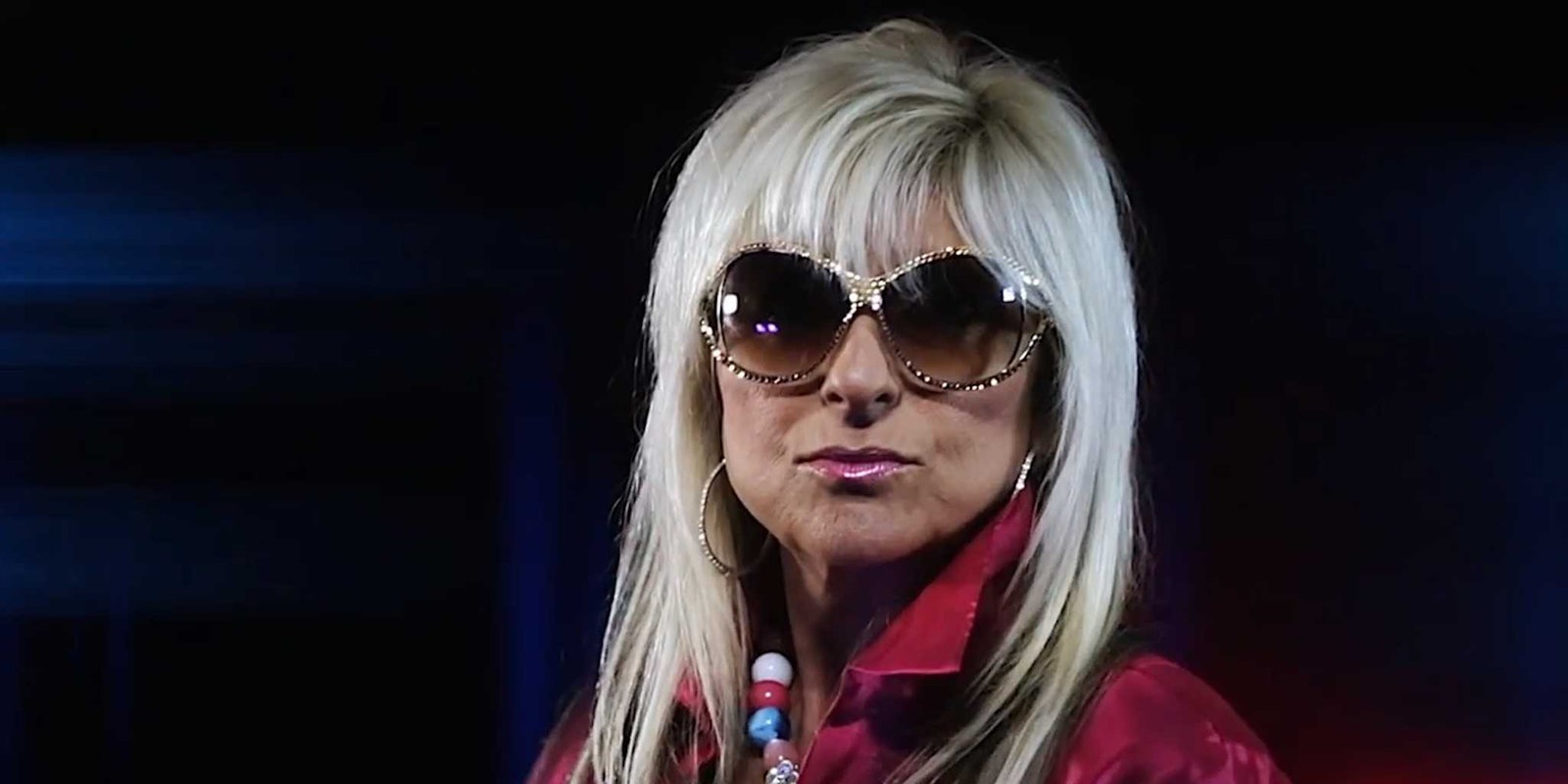In September 2011, Rebecca Black Auto-Tuned aloud her first-world concerns about “which seat can I take” on her swank convertible ride to school, ushering in—with the help of boutique song factory Ark Music—a new strain of viral video that bypasses the gauntlet path of the pop music hopeful as we know it (major label deals, weepy X-Factor appearances) by mainlining the D.I.Y. aesthetic to places we’re not accustomed to seeing it—the monied suburbs.
In the case of Lisa Gail Allred, that place is North Richland Hills, an affluent outgrowth of Ft. Worth. Close to six months after “Friday” became unintentional joke fodder, Allred debuted with “3 Second Rule,” a strange dance-country hybrid whose lyrics set some common-sense ground rules for ogling others inside the bounds of a committed relationship, namely: “You can only look for three seconds/then look away.” The clearly homemade aesthetic of the music, combined with Allred’s, err, liberal approach to tune and a video featuring the cosmetology entrepreneur (Note: This website says Lisa’s Hair and Nails salon is closed, but Gail assures us that she is “still pursuing my hair and nail salon business…I love my clients and I love what I do.”) laying down the law for a bunch of strapping cowboys automatically made her a sensation.
Jezebel was just slightly hyperbolic, calling “3 Second Rule” a “Hilariously Terrible Music Video That Will Change You Forever,” and in quick order the video disappeared from YouTube and—by all appearances—our lives forever. And then, she was back, addressing fans and critics and debuting a new song, “Coffee and Tea,” another production with a partner she simply refers to as Desi (“We work very well together!” she says). Though the song didn’t get the blogosphere thrashing or attention that “3 Second Rule” did, the track—more vibrant and somehow more catchy than her first video—signaled she was not content to drift into Final Placement singularity.
What haters missed, and continue to miss, is that Allred’s appeal can’t just be explained away by her campy productions. What’s fascinating about the woman is that she gives voice to a demographic often ignored in a solar system of bubblegum that has the selfsame life expectancy: “Die Young” isn’t just a Ke$ha single, it’s also an industry mantra. Allred is a middle-aged Caucasian and devout Christian from North Texas who collaborates with a younger black man to make music that approximates “Vogue”-era Madonna and the dancier side of Brooks and Dunn. Her voice doesn’t hit notes so much as it circles them; the musical backdrop is unapologetically synthetic. Her latest video, which debuted last week, is about being a cougar, and is likely the first dance pop track to feature the Fort Worth’s Harley Chapter. The number of artists doing exactly what she is doing can be counted on one finger; no one makes music that sounds quite like her music, and no one else writes in her voice.
Zack Udko hits the mark when he starts off his Huffington Post profile of Allred with a comparison to the Shaggs’ accidental classic Philosophy of the World. It’s true that a lot of what makes Allred compelling is what’s “wrong” with her music, meaning the atonality, the effusive sincerity, the disregard for the demographic concerns of a generation billed as a party machine. But under that layer, Allred and Desi give voice to a set of concerns that you won’t hear explored anywhere else. It’s religion, it’s heartbreak, it’s middle age and marriage. “There’s nothing like her voice in the music industry today,” Udko writes, and that alone is worth more serious consideration than Allred has garnished so far.
Also, the songs are catchy as hell. That helps.
Screengrab via LAllred1000/YouTube


